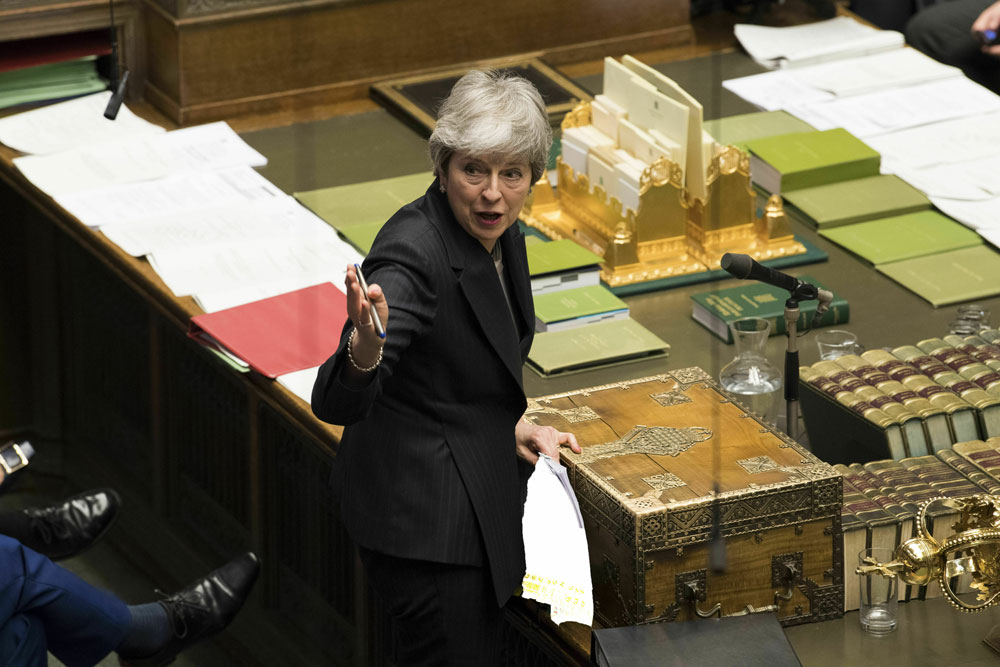Faced with a fractious cabinet, a disunited Parliament and a nation divided down the middle on Brexit, the British Prime Minister Theresa May is seeking a “short delay” to the UK’s withdrawal from the EU.
This was supposed to have taken place by March 29 according to the crucial “article 50” of the withdrawal agreement.
Instead, the Prime Minister is seeking a short delay, believed to be three months, pushing the withdrawal date to June 30. No one quite knows what will happen if the Commons cannot come to a decision by then. One possibility is that the UK will crash out with a deal, which business regards as the worst of all options but which would be welcomed by hardline Brexiteers in the Tory party and in the cabinet.
A source at 10, Downing Street, said: “PM won’t be asking for a long extension.
“There is a case for giving Parliament a bit more time to agree a way forward, but the people of this country have been waiting nearly three years now. They are fed up with Parliament’s failure to take a decision and the PM shares their frustration.”
The delay is likely to be granted although it is not automatic since it has to be ratified by all the remaining 27 members of the EU.
A delay of up to two years has been ruled out for the time being by Brexit-supporting members of May’s cabinet.
May’s plan was to ask MPs to vote a third or even a fourth time on the exit deal she has negotiated although it has been heavily defeated — by 230 votes on January 16 and by a margin of 149 on March 12.
She had hoped to ask the EU for a short delay if her deal was passed by the Commons and along one of two years if it was not. The latter was a warning to Brexiteers that British withdrawal might never happen if the delay was extended.
But the Speaker of the Commons, John Bercow, has “thrown a huge spanner in the works” by announcing that according to parliamentary precedent, the government cannot bring back the same motion — “or substantially the same motion” — if it has already been rejected by MPs.
Before agreeing to May’s request for a delay, EU negotiators will want to know why she is seeking postponement of Brexit. On Thursday May is flying to Brussels where EU heads of government are meeting for a summit.
European Commission president Jean-Claude Juncker said he was hoping for “clarity” from the UK on the way forward.
Speaking to the German radio station DRF, he suggested that agreement on an extension to Article 50 might not be reached at this week’s European Council summit, and that EU leaders might have to meet again next week to finalise it.
Juncker said: “We will probably have to meet again next week because Mrs May has not got agreement for anything either in her cabinet or her parliament.
“As long as we don’t know what Great Britain will say yes to, we can’t come to a resolution.”
Asked about indications from Downing Street that May will request a short extension of only a few months, Juncker responded: “Those months would have to produce, as an end result, an agreement from the British parliament to the (agreement) text which is before them.













